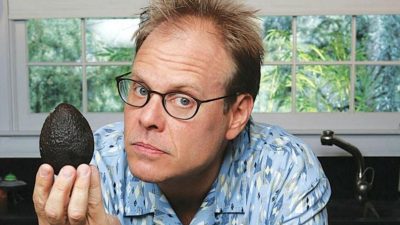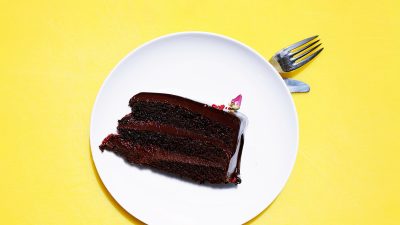Store-Bought Is Fine
In Defense of the Worst Cooks in America
The soundstage’s kitchen didn’t have a dishwasher, so he was forced to make dishwasher salmon in the oven instead—like some kind of hack.
To All the Pirate Bars Ayye’ve Loved Before
Visiting a beloved bar is less about the bar itself and more an attempt to re-inhabit happy memories, to open a door that leads to them.
Alton Brown Made Cooking More Approachable, One Prop at a Time
It was a corny, educational joy, as if Bill Nye and Monty Python had teamed up to teach America how to cook.
How Easy Is That?: Chasing Ina Garten’s Perfection With My Mother
On other cooking shows, the cooks might make mistakes and laugh about them. Ina Garten has never made a mistake.
The Pioneer Woman and the Fairy Tale of Country Cooking
What does the word “country” mean? Does it mean anything on its own or does it just color in Americans’ fuzzy sense of what constitutes Americana?
Samin Nosrat, Phil Rosenthal, and the Spirit of Eating with No Reservations
Do we hold the specialness of each meal at the core of our travel? Or is a meal that happens during a vacation a shadow of the memories it serves to create?
Cooking, For Men: How Bobby Flay and Competitive Cooking Reinforce Hypermasculinity
I suspect that these shows, which characterize speed and hustle as natural elements of cooking, are part of the male professional kitchen’s effort to divorce their work from the feminine history of cooking.
Sandra Lee Opened a Can, Made a Cocktail, and Showed Me a Mother’s Love
Critics say that Sandra Lee’s idea of cooking is nothing more than opening a can and having a cocktail. Here’s the thing: That’s true! But who cares?








